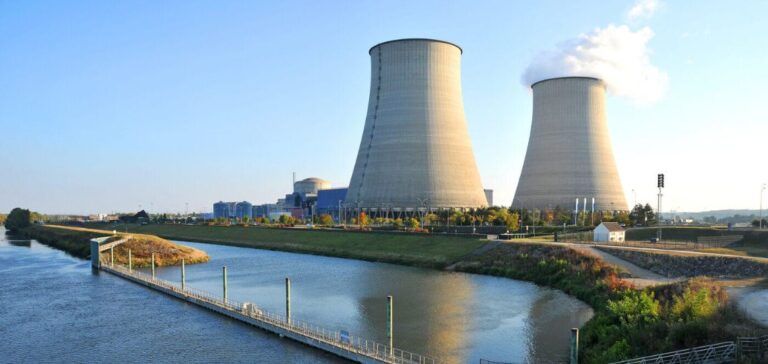A poorly formulated amendment has unexpectedly led to the rejection of a strategic article intended to revive nuclear energy in France by the Economic Affairs Committee of the National Assembly. The article explicitly aimed to set ambitious targets: the installation of an additional 27 gigawatts (GW) of nuclear capacity by 2050. Initially, it laid out precise interim milestones, notably achieving 10 GW by 2026, including the construction of six European Pressurized Reactor (EPR2) units. The accidental removal of these interim milestones through an amendment proposed by Socialist MP Marie-Noëlle Battistel resulted in the complete rejection of the article.
An amendment at the heart of confusion
Socialist MP Marie-Noëlle Battistel acknowledged to her colleagues that she had made a material error in drafting her amendment, stating that she intended to target another provision of the text. The adopted amendment ultimately eliminated the interim targets, which specifically defined the necessary steps for implementing new nuclear capacities. The text’s rapporteur, Antoine Armand, had warned about the major impact this change would have on the overall coherence of the bill. Despite his warnings, maintaining this amendment automatically led to the rejection of the entire article.
The session witnessed heated exchanges, revealing a clear divide between MPs from the presidential majority, supporters of nuclear revival, and those from the Socialist opposition, some of whom supported the amendment. Antoine Armand criticized this as a political move aimed at slowing French nuclear development, while Socialist MPs justified their vote as a clear statement of disagreement with the ambitions initially proposed. This political disagreement further intensifies existing tensions surrounding national energy decisions.
Immediate implications for the industry
This rejection places the text in a precarious situation ahead of debates scheduled for the plenary session on June 16. MPs must quickly decide whether to reintroduce the interim objectives via amendments or completely rethink the formulation of the article to ensure legislative coherence. The resulting legal and political uncertainty could temporarily influence investment decisions by major companies in the French nuclear sector.
The entire French and international energy sector is closely watching the legislative aftermath of this incident, aware that upcoming parliamentary decisions will directly impact the medium-term strategies of the businesses involved. Economic stakeholders must now navigate unexpected instability arising from a purely technical error within an already sensitive energy context.






















